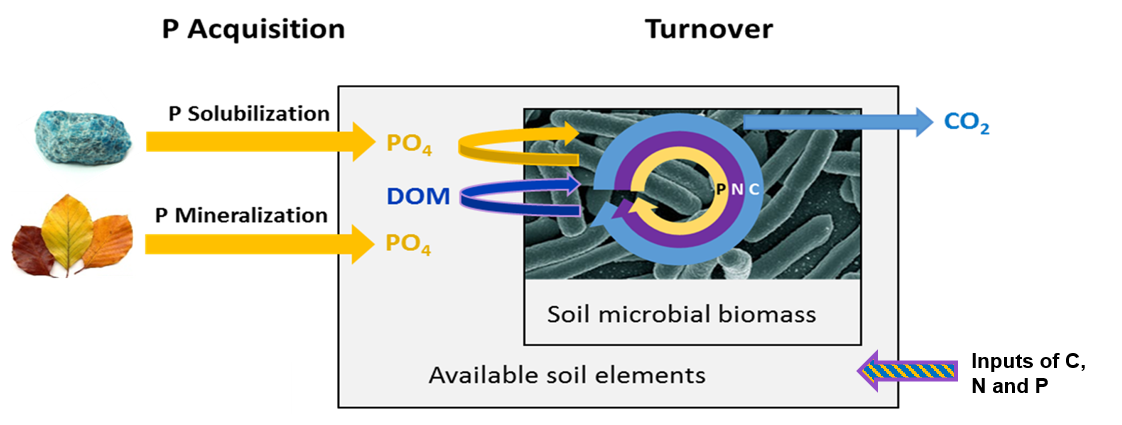Microbial phosphorus cycling in forest soils as dependent on carbon, nitrogen and phosphorus availability
DFG SP1389/4-2 im SPP 1685
From 07/2016 to 12/2020Principal Investigator: Marie Spohn
Staff: Giovanni Pastore
Microbial phosphorus (P) cycling is crucial for forest nutrition. Previous research focused on microbial biomass P stocks and phosphatase activity, but little is known about the rates of microbial P cycling processes such as solubilization of bound P, turnover of P in the microbial biomass, and net P mineralization. The objective of this project is to gain understanding of microbial P cycling depending on carbon (C), nitrogen (N) and P availability in beech forest soils. The general hypothesis of the project is that rates of microbial P cycling depend strongly on C and P availability. We will, first, study net P mineralization rates, phosphatase activity and microbial P immobilization in a full factorial N and P application experiment in beech forests. We will, second, quantify the mean residence time of C and P in the microbial biomass by labeling microbial DNA with 14C and 33P in a girdling experiment and in forest soils differing in P availability. Third, we will determine the capacity of microbial communities to solubilize P based on incubation experiments with soil extracts and added mineral P. This will be the first study to determine the mean residence time of C and P in the microbial biomass by labeling microbial DNA with 14C and 33P. The main value of the project will be that it relates rates of microbial P cycling in forest soils to C, N and P availability.


